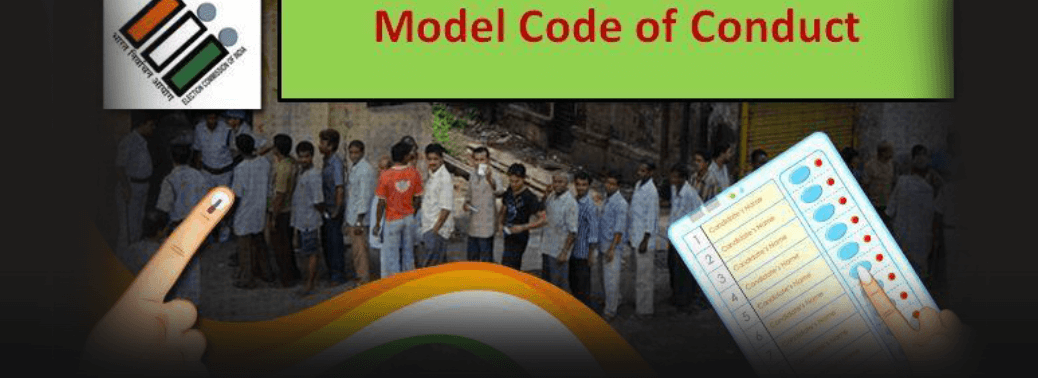POSERS ON THE CODE
07, May 2019

Prelims level : Polity & Governance
Mains level : Governance, Constitution, Polity, Social Justice and International Relations
Why in News:
- The EC risks its reputation for even-handedness on the speeches
Details:
- Policing the conduct of political parties and candidates is equally demanding.
- The focus is on the manner in which the EC is dealing with complaints for some of controversial campaign speeches.
- The prohibition against the use of the armed forces in election propaganda is to underscore their apolitical nature and to deny ruling parties the opportunity to project their performance as their own achievements.
Model Code of Conduct
- The MCC is a set of guidelines issued by the Election Commission (EC) to regulate political parties and candidates prior to elections. Basically, the code spells out the do’s and don’ts for elections.
- This is in keeping with Article
- 324 of the Constitution, which mandates EC to conduct free and fair elections to the Parliament and State Legislatures.
- It is not statutory but Political Parties, Candidates and Polling Agents are expected to observe the norms, on matters ranging from the content of election manifestos, speeches and processions, to general conduct etc.
- The code comes into force on the announcement of the poll schedule and remains operational till the process is concluded.
- The cVIGIL App provides time-stamped, evidence-based proof of the Model Code of Conduct / Expenditure Violation, having live photo/video with auto location data.
- Any citizen can lodge a complaint through the Mobile App. Flying Squads will then investigate the matter and the Returning Officer takes the decision.
- The status of cVIGIL can be shared with the cVIGIL complainant within a specified time limit. In 2013, the Standing Committee on Personnel, Public Grievances, Law and Justice, recommended making the model code of conduct legally binding.
- The committee observed in a report on electoral reforms that most provisions of the code are already enforceable through corresponding provisions in other statutes. It recommended that the MCC be made a part of the Representation of the People Act, 1951.
- The EC argues against making it legally binding. According to it, elections must be completed within a relatively short time or close to 45 days, and judicial proceedings typically take longer, therefore it is not feasible to make it enforceable by law.






